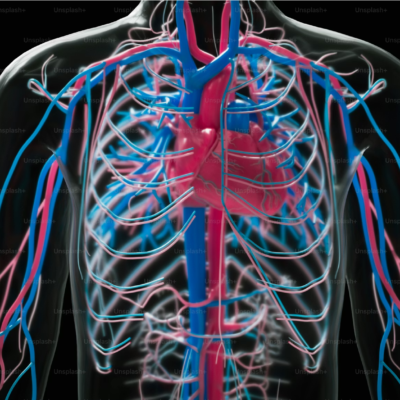5 Common Lies Your Parents Told You – Debunked!
When I was a young lad, my mother always told me things that I would believe as a naive child with no reason to distrust my dear mother. Looking back, I realized that it was total malarky. Knowing that I am older with infinite knowledge and information at my fingertips (AKA Google), I proceeded to look up these quotes of my past because I wanted an in depth understanding of them. In this article, I’m going to bring up common lies children born in the early 2000’s might have heard from their parents, the history of them, and compare them alongside scientific studies that prove these sayings aren’t true.
1. Eating Carrots Will Improve Your Eyesight
Starting with the first lie our parents told us as kids: eating more carrots, in fact, WON’T improve your eyesight. While this isn’t an excuse to not eat carrots, eating this vegetable has no positive impact on your vision. However, eating carrots is connected to benefiting a person’s eye health…which isn’t as cool as gaining 20/20 vision, but still very important, if that makes you feel any better. According to Westside Eye Clinic, the British Air Ministry started this myth during World War II to deceive the German Air-Force and promote vegetable consumption amongst British citizens. The Royal Air Force claimed that their pilots’ visual accuracy, mainly at night, was better due to their high consumption of carrots.
2. Sitting Too Close to the TV Will Cause Blindness
Let’s travel back in time to 2014. As we zoom in, we see a young boy excited to spend his Saturday watching cartoons and eating sugary cereal, but then you hear the words of his mother advising him to not sit so close to the TV or else he’ll go blind. Now, as someone who is a master of this topic (I looked at 6 articles max), I can say this is balderdash. According to Dr. Jason E. Compton at Compton Eye Associates, this lie dates back to the time when TVs first came into frame. Fun Fact: When TV’s were originally made, they produced radiation, which has the potential to be harmful to humans. But this is no longer a problem facing modern TV use, due to safety precautions now in place — such as electronic hold-down safety circuits and regulated power supplies — then, which have effectively eliminated radiation risks. I’m guessing this old lie just stayed around far too long after the problem was fixed.
3. Cracking Your Knuckles Cause Arthritis
Scientific evidence has no evidence linking cracking knuckles to developing arthritis. Due to the large amount of concern for this habit, plenty of studies researched this potential. But they all showed negative results. When trying to find an origin for this lie, all my sources were inconclusive. What I believe was the starting point for this lie was something like this: one day, some kids found out about knuckle-cracking and did it non-stop. Some overworked parent was so tired of hearing the sound, that they created a quick warning to spread to children to stop them from having to worry about being seen as a bad guy for wanting some peace…but that’s just my theory. When asking others about this myth, some said that it might be a superstition, whereas others believe it might have started during slavery.
4. Swallowed Gum Will Stay In Your Stomach For Seven Years
Gum, the sweet chewy and sticky substance that we all love and cherish. I’m here to tell you that the rumor of gum staying in your stomach for seven years is utter gibberish. While gum is sticky, it cannot adhere to the lining of your stomach. Ultimately, it’ll just pass through your digestive system as other foods do. However, humans lack the enzymes needed to break down gum base but it poses as much threat to us as corn and fiber. While looking for the origin for this lie, I found nothing for this. I also can’t think of any other reason for this lie to appear from thin air and spread to every household. Others believe it’s something that was just created by pure paranoia — similar to the myth that if you swallow a watermelon seed, a watermelon will grow inside of you.
5. Coffee Stunts Your Growth
Now, finally the last hogwash lie. Coffee has no connection to stunting growth and has been disproven by Harvard Health Publishing. Based on How Stuff Works’ research, this lie started due to a study done some time ago that showed some coffee drinkers with low bone mass. However, it happened to be purely coincidental that they had low bone density.
While our parents likely had the best of intentions here, it’s important to know that these are all based on myths to discourage bad habits from developing in our early stages of life. By understanding the origins and the scientific truths behind these common lies, we can appreciate the lessons they intended to teach us while also debunking the falsehoods. So, next time you hear one of these classic lines, remember that it’s always a good idea to do a little research and find out the facts for yourself.










